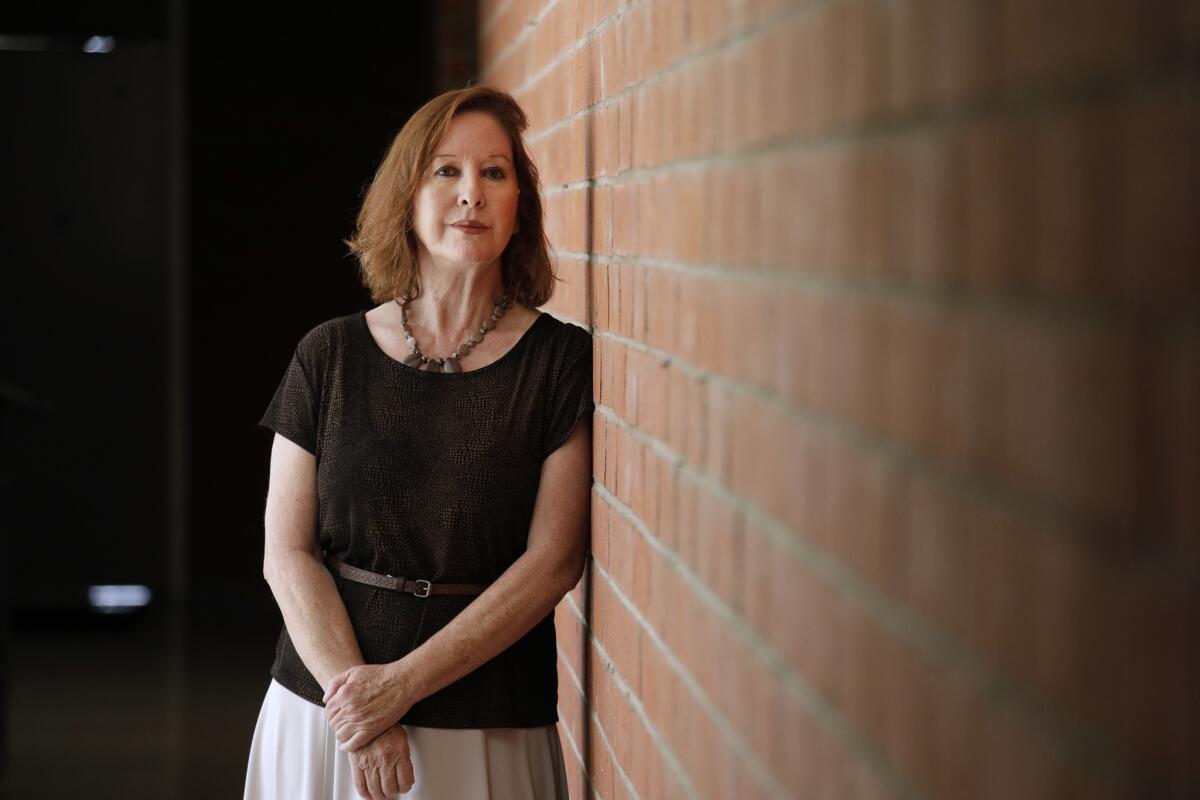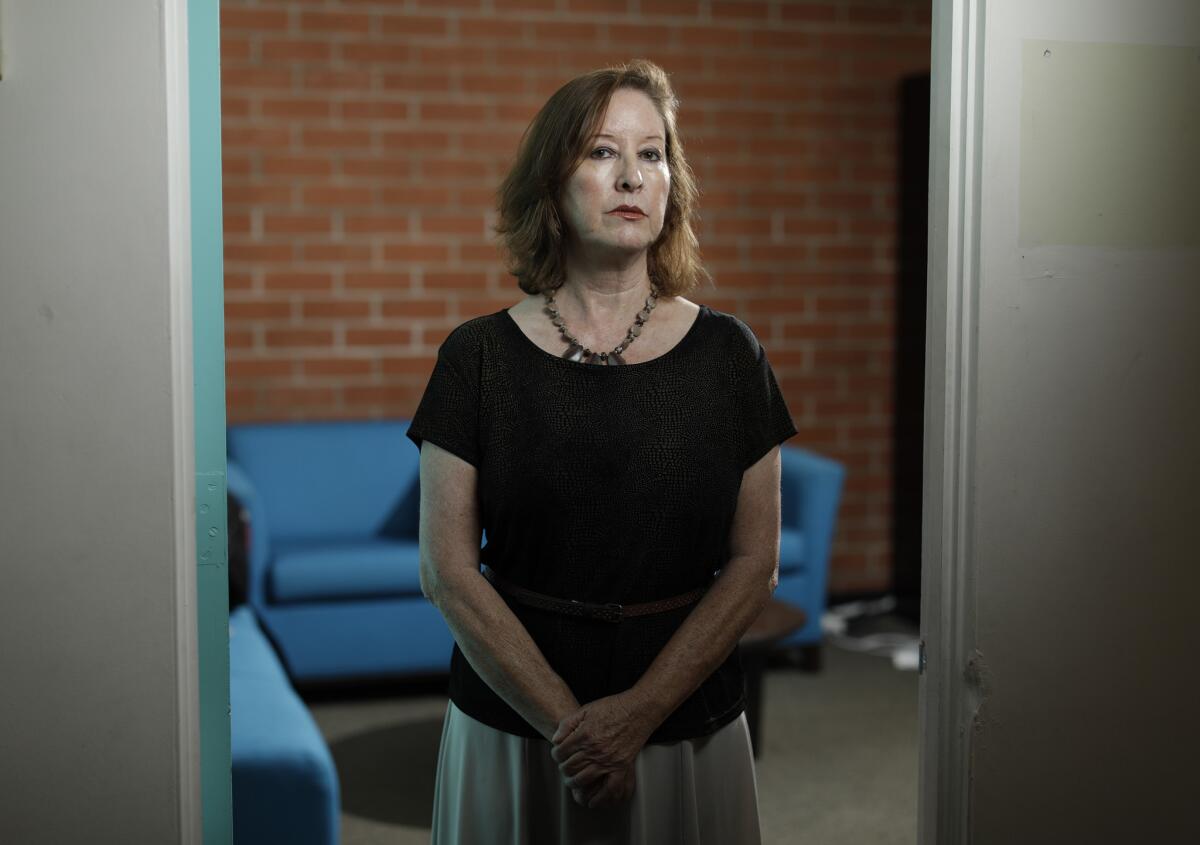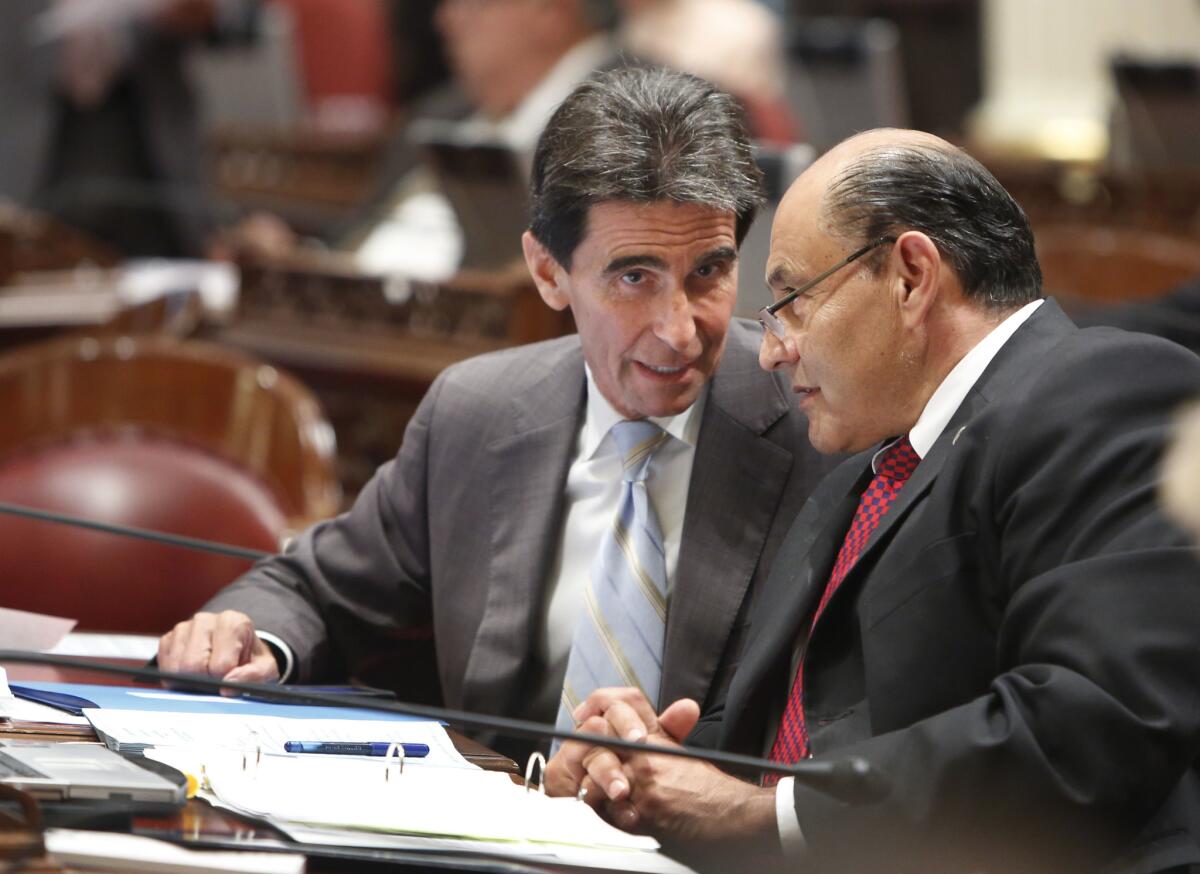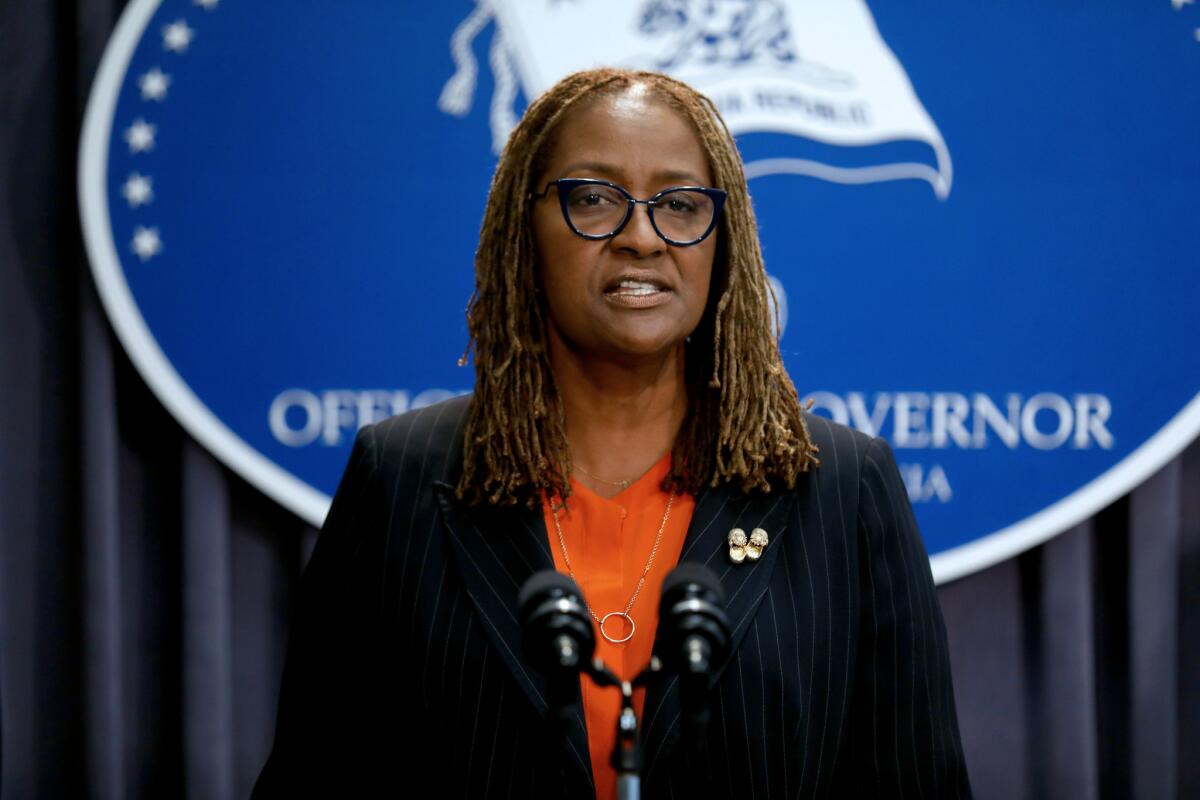Must Reads: Here’s how California became the most secretive state on police misconduct

Reporting from Sacramento — In the 1970s, Los Angeles police officers were furious that past complaints against them increasingly were making their way into court cases.
So LAPD officials did something radical: They took more than four tons of personnel records dating to the 1940s and shredded them.
That decision resulted in the dismissal of more than 100 criminal cases involving officers accused of wrongdoing whose records had been purged, sparking public outrage.
The Legislature responded by passing a law that ensured officer discipline records would be preserved — but also made it nearly impossible for anyone to learn about them. The action, driven by police unions, began a decades-long process that has made California the strictest state in the nation when it comes to protecting police confidentiality.
That could change in the next few weeks, with lawmakers in Sacramento considering a landmark effort to increase disclosure.
Repeated efforts to open access to misconduct records have run into aggressive opposition from the unions, one of the most powerful political forces in the Capitol and city halls around the state. Lawmakers who championed transparency faced threats of union opposition at election time.
Police unions repeatedly have argued that California’s confidentiality rules protect officer safety and privacy — and prevent cops’ names from being dragged through the mud.
But this year, a group of California legislators is confronting police unions in ways once unthinkable. They argue the organizations are out of touch with public sentiment over how officers use force and interact with communities of color. The shift comes amid the backdrop of the Black Lives Matter and criminal justice reform movements.
“It’s hard to build trust … when police keep secret how they respond to killing members of the public and hide serious misconduct,” said Peter Bibring, director of police practices at the American Civil Liberties Union of California.
The latest proposal to make some misconduct records public faces a key decision in the Legislature this week. While passage is far from assured, some union leaders privately are conceding that a measure of disclosure might be inevitable.
Robert Harris, a director for the union that represents rank-and-file LAPD officers, said high-profile videos capturing police using force — and the protests that followed — have put his side on the defensive.
“We’re kind of at the table trying to work with them, not because of the validity of their arguments but because we’re watching this movement create some hostility in our communities,” Harris said. “The profession of law enforcement is under siege.”
No other state has locked away citizen complaints and internal investigation files like California.
Records of misconduct that results in suspensions and other significant discipline are public in 21 states. Only California, Delaware and New York have specially enshrined confidentiality laws that single out police disciplinary files. California is alone in denying prosecutors direct access to the records.
A Times investigation found that past misconduct, whether alleged or proven, routinely is kept hidden in court as a result of California’s police privacy laws.
The road to secrecy began in 1974, when the California Supreme Court ruled that defendants had a right to know about complaints that had been lodged against officers testifying in their cases. Defense attorneys started asking for information that might cast doubt on officers’ testimony.
It was during the barrage of requests that the LAPD destroyed complaints dating to 1949 that hadn’t resulted in a finding of wrongdoing. The leader of the Peace Officers Research Assn. of California, or PORAC — the state’s largest law enforcement labor organization — complained that criminal defendants could now “embark on fishing expeditions into peace officers’ personnel files.”
In 1978, state Atty. Gen. Evelle Younger sponsored the legislation that required departments to keep misconduct records but also expressly blocked public access and made it much more difficult to view them in criminal court.
Under the bill, defendants would have to persuade a judge to examine an officer’s confidential file, in private, and decide if there was relevant information to disclose.
The Legislature passed the measure unanimously, sending it to Gov. Jerry Brown, then in his first term, who signed it.
Later that year, after Brown won reelection, his chief of staff credited law enforcement as one of most significant endorsements that led to his victory.
After the law took effect, a slice of police misconduct records remained available to the public.
In Los Angeles, Oakland, San Francisco and other major cities, civil service commissions or police review boards considered officer discipline issues in open hearings. In 2006, the California Supreme Court ruled that the confidentiality law also applied to those hearings.

That prompted Sen. Gloria Romero, a Democrat from Los Angeles, to introduce a bill to reopen disciplinary hearings and make some police records directly available to the public.
Law enforcement unions fiercely opposed what they described in letters to lawmakers as an attempt to undermine their “sacred” right to privacy.
John Stites, a union leader from Southern California, warned in an email to a lobbyist that if the bill passed, police would try to defeat a ballot measure seeking to extend the time some legislators could remain in office.
“There is no compromise on this. Ensure it be understood that this will only be the beginning,” Stites wrote in the message, which quickly made its way to lawmakers.
At a hearing for Romero’s bill in the Assembly Public Safety Committee, law enforcement officials filed into the committee room’s front rows — seats typically reserved for legislators and their staffs. So many police officers and lobbyists stood to express their opposition that the line extended out the door.
Ron Cottingham, then head of the law enforcement union PORAC, told the committee that Romero’s proposal was “one of the most insidious and dangerous bills we’ve seen come along in many years and maybe decades in Sacramento.”
The bill died without a vote.
The following year, Romero tried and failed again.
She said in a recent interview that the experience showed her why police unions are so feared in the Capitol.
“It’s a pack. Like wolves coming at you,” Romero said. “Other [legislators] see it, and you’re basically like meat thrown to the lions.”

Around the time of Romero’s first bill, Assemblyman Mark Leno (D-San Francisco) introduced a similar proposal. It failed to win enough support to merit even a committee vote.
A year later, in 2008, Leno was running for the state Senate when opponents set up a political action committee called Protect Our Kids that ran ads attacking his votes to cut education spending. San Francisco’s police union, which was critical of Leno’s unsuccessful bill, was one of its top donors.
The lawmaker, who is openly gay, said he considered the committee’s name to be a clear reference to homophobic stereotypes about gay men as child predators.
“That’s how they play,” Leno said. “You come after us, we’ll come after you.”
San Francisco police labor officials did not return calls for comment. At the time, a union leader told reporters they were upset about Leno’s votes on public safety and education issues.
Leno won the election but waited until his final year in the Senate before introducing a new police transparency bill in 2016.
The timing followed the rise of the Black Lives Matter movement and the 2014 killing of Michael Brown, a black teenager shot by a white officer in Ferguson, Mo.
Even so, the bill quickly died in a Senate fiscal committee.
“It was just too hot,” Leno said.

Two years later, a hearing on the latest disclosure bill showed how far the tone surrounding police issues has changed in the Capitol.
Sen. Holly J. Mitchell (D-Los Angeles) told union lobbyists in April that they were out of touch with how communities perceived officers. No longer, she said, would the unions always get their way.
“Those days are over,” Mitchell said.
Her warning came less than a month after protests erupted near the Capitol in the wake of the fatal shooting of Stephon Clark, an unarmed black man, by Sacramento police.
Senate Bill 1421 would open records from investigations of officer shootings and other major force incidents, along with confirmed cases of sexual assault and lying while on duty. The bill must clear an Assembly fiscal committee this week en route to passage in the Legislature by the end of August, when lawmakers break for the year.
Its author, Sen. Nancy Skinner (D-Berkeley), has argued lawmakers must heed calls from black and Latino residents who want to know what happens to officers they accuse of misbehavior.
Police unions complain the measure would increase government costs and prompt a flood of court filings by inmates seeking release once a law enforcement witness’ past dishonesty is revealed. Knowing internal investigations will be disclosed, they say, also could lead some officers to hesitate during violent confrontations, endangering their lives.
“It has unintended consequences that are extreme and will hurt the public,” Ed Fishman, an attorney with PORAC, said at the April hearing.
Unlike in years past, the unions say they’re willing to negotiate.
Brian Marvel, current president of PORAC, said he could see the state’s rules changing in cases in which officers were found to have committed serious misconduct. “I’m not opposed to opening records,” he said.
As public scrutiny of police conduct has increased, unions also have experienced setbacks at the ballot box. In recent years, statewide voters approved several justice reform measures despite law enforcement opposition, including initiatives to unwind the state’s strict three-strikes sentencing law and reduce punishments for low-level thefts and drug offenses.
Still, the law enforcement lobby remains highly influential and the bill’s future uncertain.
Endorsements from police groups still are highly coveted by lawmakers fearful of opponents labeling them as soft on crime. Over the last decade, those unions have contributed more than $145 million to statewide ballot measures as well as legislative, gubernatorial and other statewide races, according to a Times analysis of campaign finance data. They’ve spent an additional $18 million on lobbying and other efforts to influence policy at the Capitol.
Assemblywoman Lorena Gonzalez Fletcher (D-San Diego), who worked closely with police unions as a labor leader before being elected in 2013, heads the fiscal committee that will consider the bill this week.
Gonzalez Fletcher said she strongly supports protecting officers’ privacy. But she agrees that the conversation surrounding policing issues has changed.
In her district, which encompasses southern San Diego and stretches to the Mexican border, she’s noticed more complaints from Latino residents that police are treating them unfairly.
“Transparency is necessary,” Gonzalez Fletcher said. “We have to do something in order for communities like mine to gain trust in police again.”
Times staff writers Ben Poston, Mini Racker, Maloy Moore and Jack Leonard contributed to this report.
Coverage of California politics »
More to Read
Get the L.A. Times Politics newsletter
Deeply reported insights into legislation, politics and policy from Sacramento, Washington and beyond. In your inbox three times per week.
You may occasionally receive promotional content from the Los Angeles Times.











